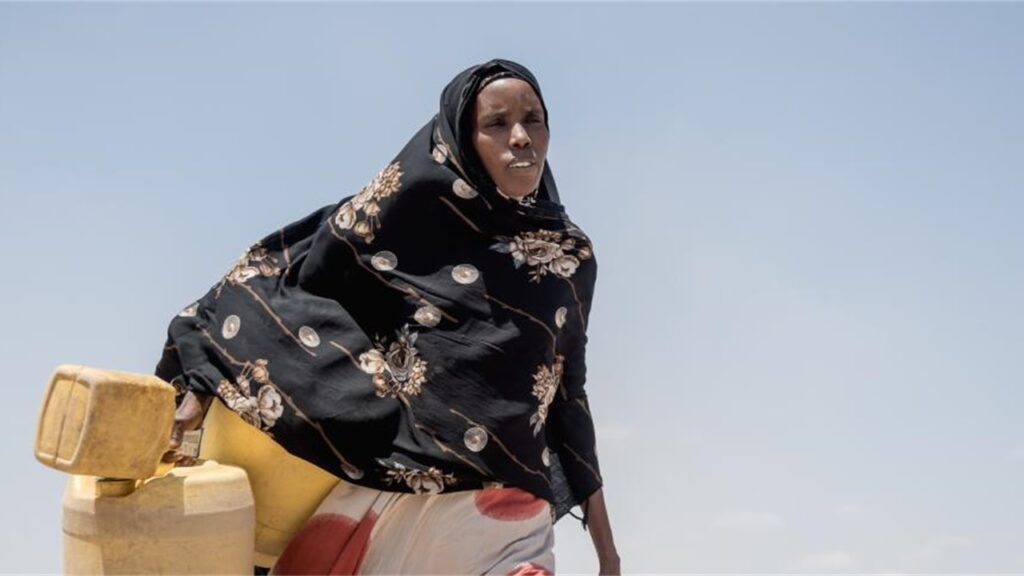Is Africa missing the moment?

African countries’ labour laws could do more to create gender equitable parental leave in key sectors, particularly agriculture, for a globally competitive Agrifood system.
African Women in Agriculture are the backbone upon which the continent’s food security ecosystem is built upon. They play central roles ranging from production, aggregation, distribution, and consumption. The continuously growing burden of unpaid care work and dissonance on the continent’s strategy to address it plunges this demographic into a continued perpetuation of indecent working conditions, mental and emotional exhaustion and unbalanced social dynamics and structures. Africa’s unprogressive labour market policies have had detrimental effects on its female workforce in Agriculture. While the continent’s journey towards inclusive social protection safety nets has begun, as indicated by the adoption of the Abidjan Declaration adopted at the 14th African Regional Meeting, the discriminate gender stereotypes and beliefs that shape the work narrative threaten to erode the region’s progress.
Gender inequitable parental leave structures exacerbate the care workload for women in Africa.
Women in Africa’s agri-food systems face worse conditions than their male counterparts; with their livelihoods characterized as informal, irregular, and labour-intensive. Discriminatory social norms largely rooted in traditional African beliefs worsen the burden of unpaid care work among women in agriculture. This is exacerbated by exclusionary paternity and maternity leave structures. With a majority of this demographic working in the informal sector, they lack maternity protection, among other social protection parameters. While 55% of African countries provide paternity leave, global statistics indicate that the agriculture sector ranked averagely in terms of its paternity benefit rates and uptake. The lack of equitable parental leave for both women and men working informally in Agriculture contributes to an increasing care workload for women in Africa.
African traditional beliefs continually define an unequal work narrative for key sectors in Africa.
This challenge is borrowed from a work narrative adopted from African traditional belief that assigns different roles to men and women. Traditionally, women are regarded as “carers” while men are considered “workers.” These defines acceptable roles and opportunities for both genders in the household, community and in the economy. Despite women making up 60% of food producers, they continue to shoulder the bulk of care responsibilities.
In addition to unequitable parental leave structures, the burden of unpaid care work for women in agriculture is worsened from use of rudimentary tools in food production and time use spent on environmental care, stemming largely from effects of the climate crisis.
With the sectoral gender care gap, Africa is unfavourably competing on the global food systems ecosystem.
These beliefs not only perpetuate gender inequalities, but also reduce the overall productivity of the agricultural sector. With exclusionary parental leave structures limiting women’s ability to fully participate in the agricultural workforce, this has resulted in labour shortages. These practises prevent African women who possess invaluable indigenous knowledge and skills needed for sustainable farming practices from contributing to the sector’s progress. As the African agricultural sector faces challenges related to climate change and increased food demand, these exclusionary parental leave structures worsen the gender care gap hindering the sector’s ability to innovate and adapt effectively. There are also social and health costs attached to this. When women are forced to return to work shortly after childbirth, this increases maternal and infant health problems resulting in diversion of resources and budgets from other essential public services. Within the context of the global economy, in comparison to African countries, countries with inclusive maternity and paternity leave policies tend to have a more competitive workforce benefitting from diverse perspectives and talents that foster innovation and productivity. Ultimately, this limits the continent’s ability to compete on the global stage as well as achieve global development objectives.
While paid maternity leave has become a standard in most industrialized countries, progress has been uneven. There has been minimal increase in the number of women entitled to maternity protection mainly because of the extension of social security plans to women who were not previously covered, such as agricultural workers, domestic workers and the self-employed. As of 2014, only two African countries, Mali and Morrocco had ratified ILO convention no. 183 providing for the promotion of health and safety of women during pregnancy including protection from dismissal.
Conspicuously, in protecting its female workforce, Africa’s challenge is two-fold. Firstly, while majority of states provide for maternity leave, women still face several diverse challenges in exercising this right as characterised by lack of access to quality maternal health care, inadequate leave days and cash transfers, discrimination based on pregnancy and childcare responsibilities. In contrast, women in the informal sector have no social protection whatsoever, including maternity leave.
To establish a comprehensive protection framework, research is essential to understand the needs of these two groups and advocate for women in key sectors such as agriculture.
Without rigorous reform on parental leave, Africa’s ability to achieve a gender responsive agricultural value chain development is limited.
Africa’s CAADP framework outlines the continent’s objectives, strategies, and milestones in agrifood development. One of its key objectives is to promote gender responsive value chain development. To achieve this, African Union member states must identify gender-based constraints that; reduce the productivity of women in agriculture and identify policy interventions that would address those challenges. Notably, it is important to recognise the untapped potential of the care economy to contribute to Women’s Economic Empowerment in Africa as outlined in the Maputo protocol and Solemn Declaration. Whereas women comprise of 60% of the agricultural workforce in Africa, they have lower rates of productivity in comparison to their male workers – the care workload significantly contributes to this inequality. In creating equitable parental leave structures for key sectors such as agriculture, African countries can move closer to realizing a gender-responsive agricultural value chain as envisioned in CAADP. This would not only boost agricultural productivity but also create formalised structures for domestic planning, particularly on childcare.
The roadmap to Just Care Economies in Africa
African countries must qualify existent labour legislation to ensure their efficacy in recognizing, reducing, and redistributing care work. This should result in updated parameters for both maternity and paternity leave in duration of leave, eligibility criteria, and the percentage of regular pay employees receive during their leave. Further, to achieve this target government must sensitize uptake of paternity leave at household and communal levels.
To achieve the gender-responsive agrifood ecosystem that Africa envisions, governments must expand labour laws on parental leave to cover workers in the informal sector including in agriculture. With Gabon and Tunisia having set up special social protection systems for self-employed women in the informal sector, this should be leveraged to inform systematic scale up across the content.
There are inadequate African focused studies on the maternity and paternity leave for carers in agriculture. African Government should invest in research around the issue of paid maternity, and paternity leave, it’s implication to carers especially women as well as implication on economy.
As the CAADP framework approaches review, a future food systems development framework must encompass, with clarity, care indicators integrated into the gender responsive value chain development objective. This must be in accordance with the 5R framework on care (recognizing, reducing, redistributing, representation, rewarding,) and must be reflected at national level. To achieve this the African Union and member states must invest in data collection on time use and care work.
This blog was written by Wanjiku Wanjohi, Charity Namara, and Naomi Majale. Photo shows Seinab headed to the dam to fetch water in Badana, Kenya. Photo credit: Loliwe Phiri/Oxfam
